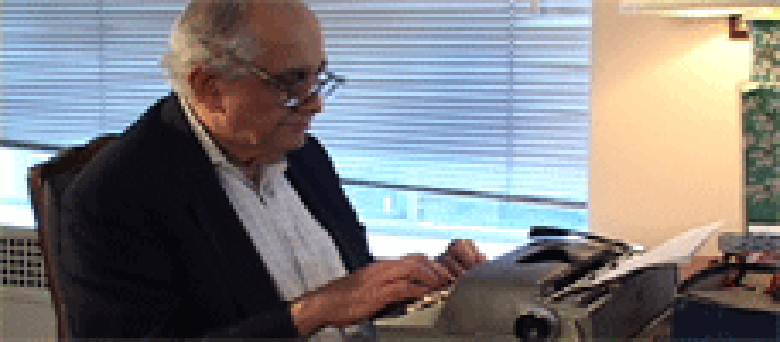Reviews
The Story of American Film Criticism
Gerald Peary
USA, 2009
Credits
Review by Victoria Large
Posted on 10 November 2009
Source Projected DVD
Long-serving Boston-based film critic Gerald Peary’s debut as a documentarian tackles a subject that is, in my biased opinion, overdue for the kind of serious consideration that it gets here. Yes, Peary’s For the Love of the Movies: The Story of American Film Criticism is both an in-depth chronicle and unabashed defense of what the opening moments of the film define as a “profession under siege.” The nature of that siege will likely be familiar to anyone who cares enough of about film and film criticism to take an interest in Peary’s documentary in the first place: as the newspapers and magazines where popular film critics used to make their homes face an uncertain future; the Internet offers an overwhelming mix of serious, refereed criticism and anonymous, unsolicited opinions; and movie studios (and some may argue, the general public) grow increasingly indifferent to what critics have to offer; the role of the critic has been continuously questioned and even declared obsolete.
With For the Love of Movies, Peary has wisely determined that the best defense of film criticism is, well, film criticism itself. In addition to archive footage and lively interviews, he includes voice-over readings of excerpts of film reviews past, lively passages that remind us that great critics have to be great writers, astute observers and thinkers who are skilled in expressing themselves. One reads the most talented critics not simply to find out their opinion, but also to take joy in how they’ve put their thoughts to paper. (Can one think of a more apt way to describe the final moments of Bonnie and Clyde than Pauline Kael’s haunting descriptor: a “ragdoll dance of death”?) Peary presents a wide range of personalities: from the poet Vachel Lindsay, who described cinema as “painting in motion” and had a crush on Mary Pickford; to populist critic Kate Cameron, who pioneered the ubiquitous “star” rating system; to Manny Farber, whose stream-of-consciousness writings are praised here by Jonathan Rosenbaum by virtue of the fact that “they can’t be turned into advertising,”
And true to its title, the documentary also revels in the critics’ abundant feelings for the cinema—it’s peppered with evocative clips of everything from silent classics to One Flew Over the Cuckoo’s Nest to Amelie, and features potent recollections such as Harry Knowles’ childhood encounter with King Kong and Elvis Mitchell’s dreamlike first brush with Herschell Gordon Lewis’ Two Thousand Maniacs! The film offers a pointed reminder that critics do what they do because of an unswerving belief that movies matter.
Peary’s own biases do creep in here and there. (One might easily guess at his preference for longtime New York Observer critic Andrew Sarris over Sarris’ New Yorker rival Kael, for one thing.) It’s particularly notable that Internet-based critics are painted a bit broadly in the film: web critics are described as being the descendents of amateur fanzine writers and are most frequently represented in the person of the unapologetically fanboyish Knowles, and at one point the film juxtaposes photographs of Roger Ebert with Teen Movie Critic’s Roger Davidson as a means of illustrating how the old guard of print film critics now coexist with online upstarts. The choice to single out Teen Movie Critic as representative online film criticism is certainly a telling one. (But hey, maybe my own biases are talking now. To wit: as a frequenter of many a Boston-area arthouse myself, I’m letting Peary’s unabashedly adoring depiction of Beantown’s cinephile culture slide.)
Nevertheless, For the Love of the Movies makes for an entertaining, informative experience, and it gets something very vital right. Peary emphasizes the essential role that disagreements have played in the history of film criticism: from the quarrels of Andrew Sarris and Pauline Kael to the frequent arguments of Siskel and Ebert during their influential years as the co-hosts of At the Movies, critics and their audiences have thrived on divergences of opinion. Peary knows that the joys of reading and writing criticism are not so much in passing judgments but in sharing in an ongoing conversation—with the past, the present, and each other. When we talk, think, and write about what moves us, we learn a little bit about each other and ourselves. Biased as I may be, I think that’s a pretty noble pursuit, and I’m glad Peary and his many interviewees have taken the time to say the same.
We don’t do comments anymore, but you may contact us here or find us on Twitter or Facebook.



